New homepage and search for COPE website
You may have noticed that the homepage of the COPE website has been redesigned. With a more simplified layout, we hope you will be able to access news, information on forthcoming events and the latest COPE forum cases more easily.
In addition, the site search function has also been improved. Search results can now be refined using the new COPE case taxonomy or by the type of content (eg, case, newsletter). The search has also been extended to make it easier to find cases and COPE members. Cases can now be found by searching by name, keyword and year. Members can also be searched for by name, as well as by country and subject area.
We are continuing to develop the COPE website to make it as user friendly and accessible as possible. We would be grateful for your feedback about the homepage, search or any other aspect of the website.
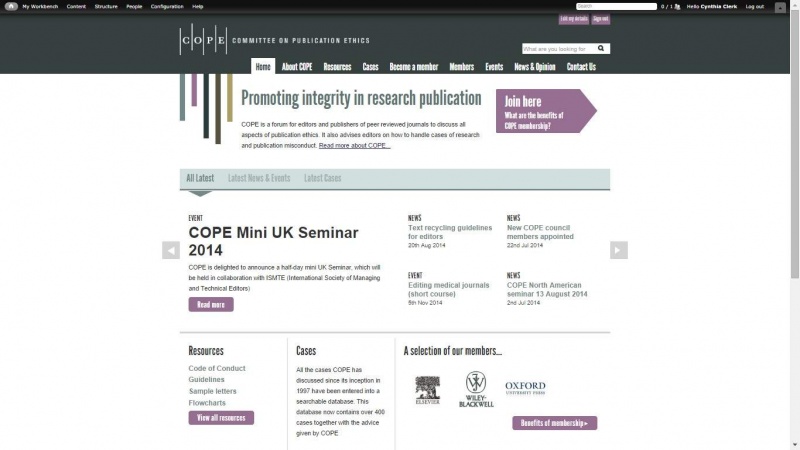
Join us for the COPE Mini UK Seminar, 13 October 2014, 1-4.30pm
COPE is delighted to announce a half-day mini UK Seminar, which will be held in collaboration with ISMTE (International Society of Managing and Technical Editors), on Monday 13 October 2014 at Charles Darwin House, 12 Rogers Street, London WCIN 2JU, 1–4.30pm. Editors, publishers, authors and all those interested in publication ethics are welcome to attend. The seminar will include an overview of COPE, an invited speaker, in addition to breakout sessions with discussion of related cases. For more details and to register, see the COPE website.
Record attendance at the COPE North American Seminar 2014
Report from COPE Council member Geri Pearson
COPE's 5th North American Seminar was held on Wednesday, 13 August 2014 in conjunction with the ISMTE (International Society of Managing and Technical Editors) in Philadelphia, PA. The theme was new technologies and behaviors for identifying publication ethics issues. The conference was aimed at editors, publishers, authors and any others interested in publication ethics.
Three speakers presented at the seminar. Laurel Haak from ORCID gave a talk on 'persistent identifiers in the authoring process', describing how ORCID works. This was followed by two talks on copyright. Michael W Carroll from Creative Commons discussed 'mobile platforms, linked content, and copyright: issues and answers' while Mark Seely, Senior VP/General Counsel at Elsevier, talked about 'OA and copyright –rights in and rights out'. All talks were well received with a lively discussion following each talk.
The talks were followed by a panel discussion on plagiarism checking software. The panel was made up of Charon Pierson (COPE Council and Journal of the American Association of Nurse Practitioners), Jason Roberts (Senior Partner at Origin Editorial) and Dmitri Khodjakov (Supervisor of Editorial System at Taylor and Francis).
Breakout workshop sessions with discussion of four cases were held in the afternoon, with accompanying discussions. Each group seemed to come to similar conclusions about cases but, as always, the discussion was lively and positive. And this session was as popular as ever. The afternoon concluded with a talk by Charon Pierson (COPE Council) on 'How editors share information about misconduct', based on the recent discussion document 'Sharing of information among editors-in-chief regarding possible misconduct' produced by COPE.
The presentations from the seminar can be downloaded from the COPE website.
The day was characterized by networking, lively discussion, and a record attendance of over 80 participants.

Laurel Haak from ORCID presenting at the COPE North American Seminar.
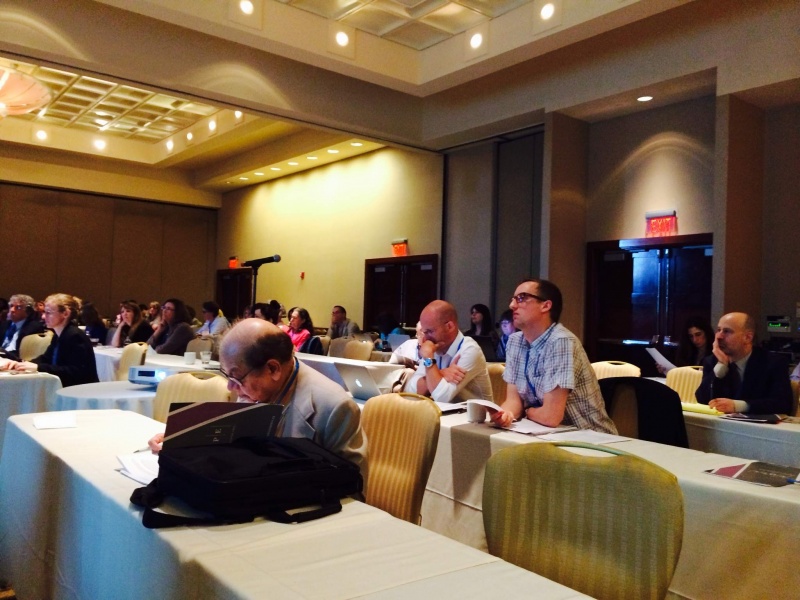
Delegates at the COPE North American Seminar.
INANE 2014: nurse editors rate COPE Forum
Report from COPE Council member Charon Pierson
The first live COPE Forum was held at the 33rd Annual Meeting of the International Academy of Nurse Editors (INANE) in Portland, Maine, on August 5, 2014. Myself and COPE Council member Geri Pearson, both of us long-time INANE members and elected COPE Council members, hosted the afternoon session. Geri and I presented a brief overview of COPE to about 40 attendees, including a session on how COPE can help nurse editors. We have found that some editors who are members of COPE do not know they are members, nor do they know about all the useful resources membership provides. We also provided some individual consultations to those with particular questions and issues.
After the presentation, we asked for those editors who had submitted cases prior to the meeting to present their cases and updates. All of the editors attending and presenting cases were members of COPE. The cases included how to deal with an editor who was not responding to emails about a manuscript in the publication queue; how to deal with repeated submissions from students at one university where there was a lack of faculty supervision and consistently poor quality of manuscripts (including plagiarism); a case of duplicate submission without any verbatim plagiarism (same data prepared for a different audience); and how to deal with a publisher’s refusal to honor the STM Permissions Agreement. The cases will be added to the COPE case database in the near future.
The feedback from the attendees was very positive and we learned that many nurse editors are consistently using and relying on the COPE flowcharts. There was, however, not as much awareness of some of the other resources COPE provides.
A few other highlights of the INANE conference included the opening presentation by museum director and chief curator Jessica Nicoll on Maine Through Artists’ Eyes; this follows the INANE tradition of exploring art, culture and history in the host city. A plenary session by Jeffrey Beall and Carolyn Yucha described some of more egregious predatory publishing and conference events in the nursing world. In addition to all the breakout sessions on nuts and bolts topics related to publishing, we also heard from true crime writer Charles Graeber who documented the life of a serial killer nurse in the book The Good Nurse, and we closed with poetry from Maine poet Richard Blanco, who wrote the 2013 inaugural poem 'One Today' for the second inauguration of President Barack Obama. And it wouldn’t be New England without a bay cruise and lobster bake!

Charon Pierson (left) and Geri Pearson (right) present to INANE attendees.

Attendees discuss cases and search for COPE resources on their personal computers.
First Annual Meeting for the Asian Council of Science Editors
Report by COPE council member Mohammad Abdollahi
The Asian Council of Science Editors (ACSE) conducted its first Annual Meeting in Dubai on 14–15 August 2014. More than 20 participants from different countries, including Australia, India, UK, Iran, Turkey, Egypt, Dubai and Pakistan, attended the meeting and presented lectures on the main theme of the meeting—open access (OA) scholarly publishing in Asia.
Dr Majid Moridani, president of the ACSE, joined the meeting from the US by video conference and shared the objectives of the ACSE with the participants. He spoke about the roles and responsibilities of authors, reviewers, editors, publishers and subscribers, before handing over to me to chair the rest of the session.
Invited speakers included Mr Mohammad Shakeel from Australia who gave a detailed presentation on standard operating procedures for scholarly journals. He suggested that ACSE should devise a committee to establish proper standard operating procedure. Dr Hulya Atil from Turkey discussed the current scenario of OA scholarly publishing in Turkey and future strategies.
I gave a presentation on publishing ethics and COPE guidelines. I told participants how to deal with misconduct and how COPE can help in such cases, by following the guidance documents for editors, publishers, board of directors and peer reviewers, and the flowcharts. I also shared details of the most common forms of misconduct and illustrated these through different cases.
COPE alumna, Dr Elizabeth Wager (former COPE chair), gave an interesting talk on correcting the literature: retractions, corrections and expressions of concern. She presented interactive case studies and described how important it is for editors to take responsibility for correcting the literature in cases of recognized misconduct.
Dr Mohammad El Wakil from Egypt talked about journal impact factors and described their limitations. He focused on the inappropriate uses of impact factors by pointing out the DORA recommendations for institutions, publishers, researchers, decision makers, funding agencies and organizations that supply metrics.
There were further talks from Dr Ghazala Hafeez Rizwani (Pakistan) on ethical behavior in the current publishing scenario; Dr Chakka Gopinath (India) shared his views on whether OA scholarly journals can have greater citation impact by giving some examples; Ms Nida Mohsin, coordinator of the ACSE meeting, discussed the threat of fake websites and predatory journals in OA publishing; Dr Kewal Krishan (India) talked about the current state of OA journals in India; Dr Tanuj Kanchan (India) discussed salami publication and plagiarism and the strategies to avoid them; Dr Natrajen (India) shared his views on the challenges and strategies facing OA journals; and Dr Aboulata (Egypt) gave his opinions and views on OA of scholarly publications in Asia by focusing on the role of editors.
On day two, Dr Wager opened the meeting for discussion. Key suggestions for the objectives and next steps for ACSE included:
- Establishment of regional focus groups in different countries of Asia.
- Organizing training courses for authors, publishers, reviewers and early career researchers on various aspects of publication ethics
- Webinars
- Nominal membership fee for developing countries
- Provision of maximum technical support to regional focus groups
- Collaboration with the established organizations working in publication ethics
- Regular annual meeting
- Establishment of a constitution for the ACSE
- Strategic partnership of ACSE with other organizations
I thank the ACSE and especially Mr Muhammad Sarwar for arranging the meeting and providing a chance to network with key professionals.

Participants at the ACSE 2014.
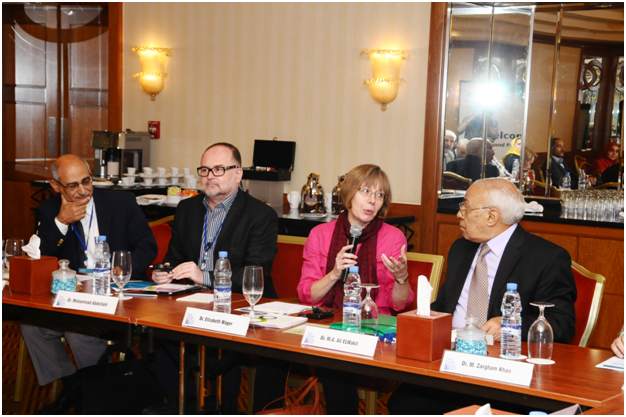
From left to right: Dr Anwar Gilani, Professor of Pharmacology, Aga Khan University and Tandem Dean, College of Health Sciences, Mekelle University, COPE council member, Professor Mohammad Abdollahi, Dr Elizabeth Wager, former COPE chair and Dr Mohammad Elwakil, Professor Emeritus, Department of Plant Pathology, Mansoura University, Mansoura, Egypt.
 The September round up shows that editors and publishers need to be ever vigilant. Data fabrication and falsification will not go away. Funders are becoming alert to this; an Australian institution has been asked to repay a research grant after one of its academics knowingly provided “misleading and incorrect” information. Also of concern, a senior academic has been found to have plagiarised sections of their thesis. The UK placebo controlled cardiac arrest trial poses an interesting ethical dilemma which journals will have to deal with when the results are submitted for publication.
The September round up shows that editors and publishers need to be ever vigilant. Data fabrication and falsification will not go away. Funders are becoming alert to this; an Australian institution has been asked to repay a research grant after one of its academics knowingly provided “misleading and incorrect” information. Also of concern, a senior academic has been found to have plagiarised sections of their thesis. The UK placebo controlled cardiac arrest trial poses an interesting ethical dilemma which journals will have to deal with when the results are submitted for publication.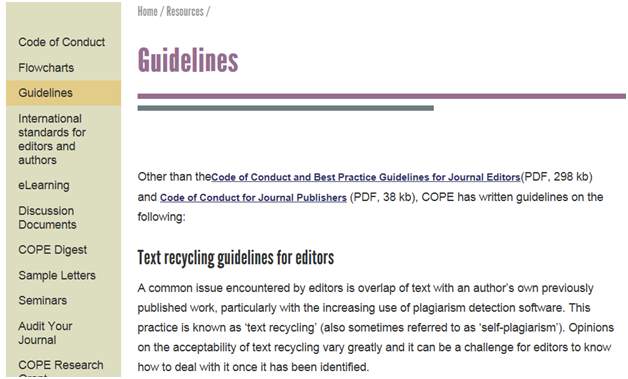
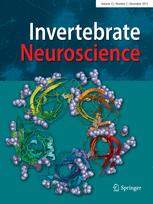
 From the
From the 
 The autism–vaccine link surfaces again in a paper removed from the
The autism–vaccine link surfaces again in a paper removed from the 
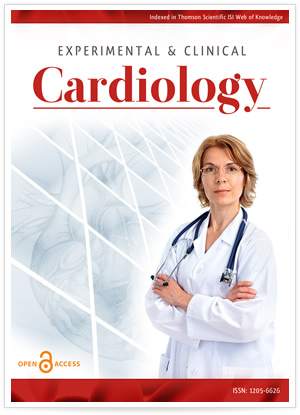
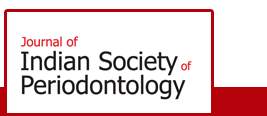 Notice of retraction from the
Notice of retraction from the 







